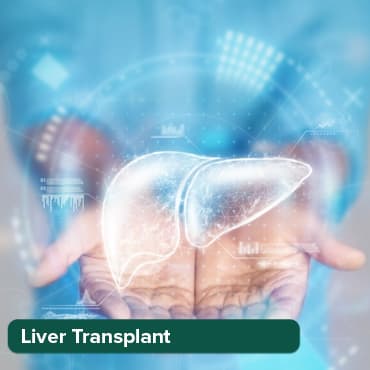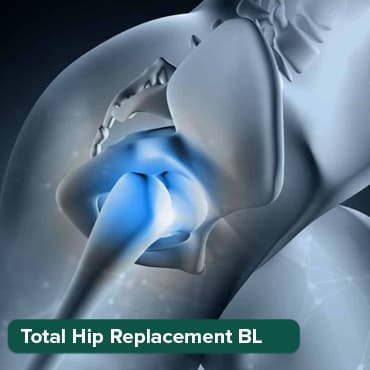
10 Signs You Should Look for Parkinson’s Disease
18 Jul, 2022
 Healthtrip Team
Healthtrip TeamOverview
It can be really hard to tell if you or your loved one is suffering from Parkinson’s disease. Here we’ve discussed a few signs through which you can test yourself for Parkinson’s disease. Our panel of the best doctors in India has discussed the same. Let’s understand such symptoms in brief.
- Look for tremors: An involuntary tremor or shaking of the hands, fingers, arms, legs, jaw, and face is one of the first complaints presented to doctors by many people later diagnosed with Parkinson's Disease.
This tremor is most noticeable when your hands are at rest rather than when they are in use, though as the disease progresses, you may notice more tremors while your hands and arms are in use.
Transform Your Beauty, Boost Your Confidence
Find the right cosmetic procedure for your needs.

We specialize in a wide range of cosmetic procedures

Tremors can be caused by a variety of factors. One of the most common causes is Parkinson's disease, and tremors are frequently the first sign of the disease.
Tremors and other symptoms may appear only on one side of the body at first, or they may get worse later and involve the other side of the body.
- Cramped handwriting: Subtle changes in a person's walking pattern could indicate Parkinson's disease.
A person with Parkinson's disease may walk slowly or drag their feet. Many people call this a "shuffling gait." The person may walk at an irregular pace, changing their stride length or walking faster or slower.
- Distorted movements: Some Parkinson's symptoms are caused by the larger symptom of slowed movements (also known as bradykinesia). This primarily affects motor functions ranging from walking and balance to writing and even reflexive or spontaneous motor functions.
These slowed movements are a very common early sign of Parkinson's disease and may appear in 80 percent of patients at the onset of the disease.
Some people may have difficulty describing their feelings and may use words like "weakness," "tiredness," or "incoordination" when discussing these symptoms.
- Examine your posture: When standing or walking, people with Parkinson's disease frequently lean forward at the waist. This is because Parkinson's disease can cause posture and balance issues, as well as rigidity. The arms and head are flexed so that the person appears bent over with the elbows flexed and the head down.
- Speech difficulties or disturbances: Parkinson's disease can significantly impair a person's ability to sleep significantly. Patients with Parkinson's disease may experience a variety of sleep-related symptoms, including:
-insomnia
Most popular procedures in India
Atrial septal defect
Upto 80% off
90% Rated
Satisfactory

Coronary Angiogram a
Upto 80% off
90% Rated
Satisfactory

Coronary Angiogram C
Upto 80% off
90% Rated
Satisfactory

Liver Transplant
Upto 80% off
90% Rated
Satisfactory

Total Hip Replacemen
Upto 80% off
90% Rated
Satisfactory

-excessive fatigue during the day
-narcolepsy
-obstructive sleep apnea
-nightmares
-erratic or sporadic movements while sleeping
- Note your voice: Another early sign of Parkinson's disease is changes in the volume and quality of a person's voice.
Speaking in a softer tone or beginning to speak at a normal volume and then becoming softer or fading away are examples of vocal changes.
- Check for GI symptoms: Parkinson’s disease also affects the muscles that push food through the digestive system. This can cause a variety of gastrointestinal problems, ranging from incontinence to constipation.
- Watch for signs of anxiety or depression: Anxiety and depression can affect up to 60% of people with Parkinson's disease. PD affects some of the brain's mood-stabilizing areas, which increases the risk of depression, especially when combined with the quality of life for patients in the late stages of the disease.
- Are you a slow walker: Bradykinesia, or slow movement, causes a variety of symptoms, including limb stiffness and slow movement? A person with bradykinesia may walk more slowly or have difficulty starting movements.
- Check your sense of smell: Hyposmia is the loss of one's ability to smell. This is also referred to as olfactory dysfunction. A loss of smell is a relatively common symptom of Parkinson's disease, affecting 70-90 percent of patients.
One of the most noticeable non-movement-related symptoms of Parkinson's disease is loss of smell. It can appear years before the disease affects a person's ability to move.
How can we help with the treatment?
If you are in search of brain tumor surgery treatment, we will serve as your guide throughout your treatment and will be physically present with you even before it begins. The following will be provided to you:
- Opinions of expert physicians and surgeons
- Transparent communication
- Coordinated care
- Prior appointment with specialists
- Assistance with hospital formalities
- 24*7 availability
- Arrangements for travel
- Assistance for accommodation and healthy recovery
- Assistance in emergencies
Our team is dedicated to offering the highest quality health care and services to our patients. We have a team of highly qualified and devoted health professionals that will be by your side from the beginning of your medical tour.
Wellness Treatment
Give yourself the time to relax
Lowest Prices Guaranteed!

Lowest Prices Guaranteed!
